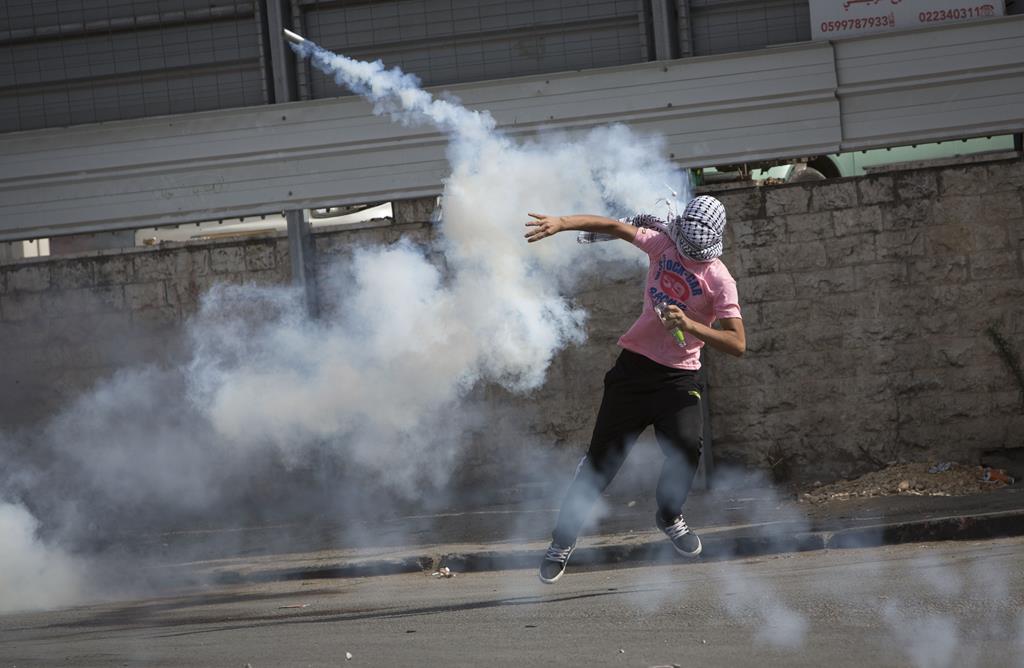Palestinians Riot for Three Days at Har HaBayis


Har HaBayis was the scene of Palestinian rioting for three consecutive days from Sunday through Rosh Hashanah, in which scores of masked youths threw rocks, concrete blocks and fireworks at police who were dispatched to quell the disturbances using tear gas and stun grenades.
Five officers were lightly wounded, Israeli police spokeswoman Luba Samri said. Twenty-six Palestinians were injured on Tuesday, none of them seriously, according to the Palestinian Red Crescent emergency unit. Several Palestinians were arrested.
Israel vehemently rejected allegations from Palestinian spokesmen that Israel is to blame for provoking the riots by pursuing a policy of taking over Har HaBayis where a Muslim shrine is located.
Foreign Ministry spokesman Emmanuel Nahshon reiterated the government’s unchanged policy of seeking to preserve the status quo at the site. He asserted that the truth was quite the opposite; that the recent skirmishes are “an attempt by Palestinians to change the status quo in a violent way.”
Azzam Khatib, the director of the Waqf — the Islamic religious authority that oversees the compound — said Israeli police “stormed” deep inside the mosque in what he called “a very dangerous development.”
Police denied the allegation and said officers only removed an unauthorized barricade that protesters had set up at the entrance. The Palestinians were hurling projectiles at Israeli security personnel from behind the barricade.
A firebomb thrown at police from within the mosque ignited a rug and planks of wood stockpiled by the protesters, Samri said. Mosque officials later extinguished the fire, she said. Police released photos showing piles of charred rubble outside the mosque.
The flare-up drew international attention, as well.
U.S. State Department spokesman John Kirby said on Monday that “the United States is deeply concerned by the increase in violence and escalating tensions…We strongly condemn all acts of violence. It is absolutely critical that all sides exercise restraint, refrain from provocative actions and rhetoric and preserve unchanged the historic status quo [at the site].”
U.N. Secretary-General Ban Ki-moon also voiced concern about the situation, as did the European Union. “The reported violence and escalation [at the site] constitute a provocation and incitement ahead of important Jewish and Muslim holy days,” European Commission spokeswoman Maja Kocijancic told reporters in Brussels. Turkish President Recep Erdogan called on U.N. Secretary General Ban Ki-moon to reprimand Israel.
King Abdullah of Jordan called the Israeli actions provocative and potentially damaging to bilateral ties with Israel.
“If this continues to happen … Jordan will have no choice but to take action,” King Abdullah, was quoted as saying. Jordan’s Hashemite dynasty derives some of its legitimacy from its traditional custodianship of the Muslim site.
On Tuesday night, firebombs were reportedly thrown at the security fence near the village of Har Adar in the environs of the capital. The firebombs started a brush fire, but did not pose a threat to nearby homes and no injuries were reported.
This article appeared in print on page 1 of edition of Hamodia.
To Read The Full Story
Are you already a subscriber?
Click "Sign In" to log in!

Become a Web Subscriber
Click “Subscribe” below to begin the process of becoming a new subscriber.

Become a Print + Web Subscriber
Click “Subscribe” below to begin the process of becoming a new subscriber.

Renew Print + Web Subscription
Click “Renew Subscription” below to begin the process of renewing your subscription.












